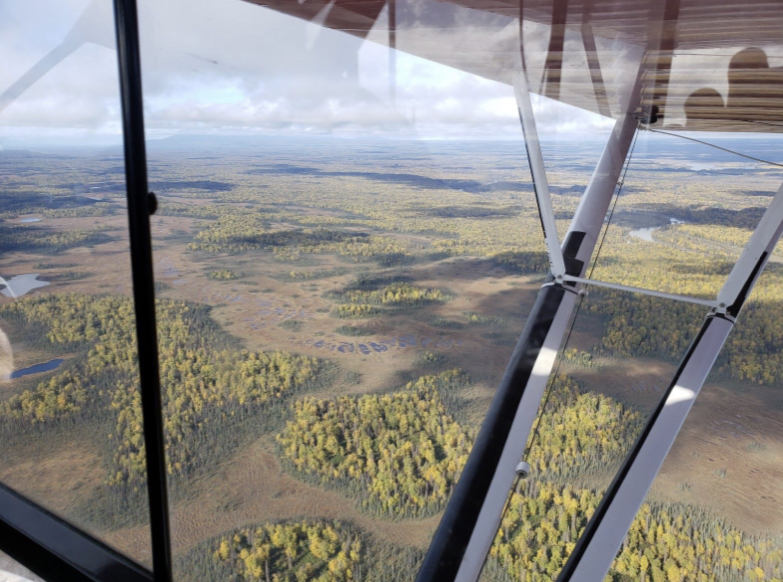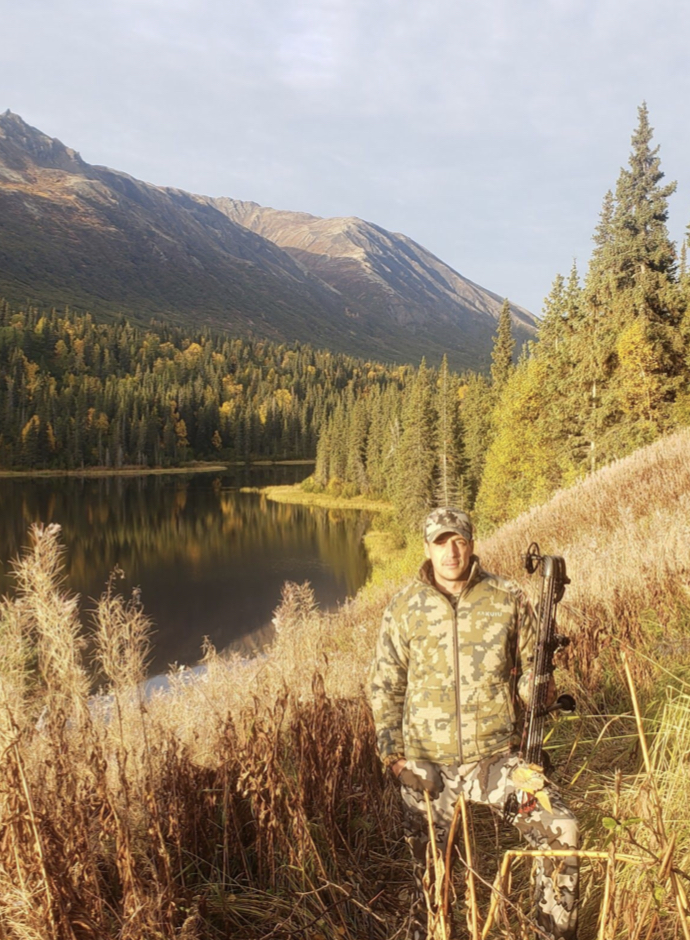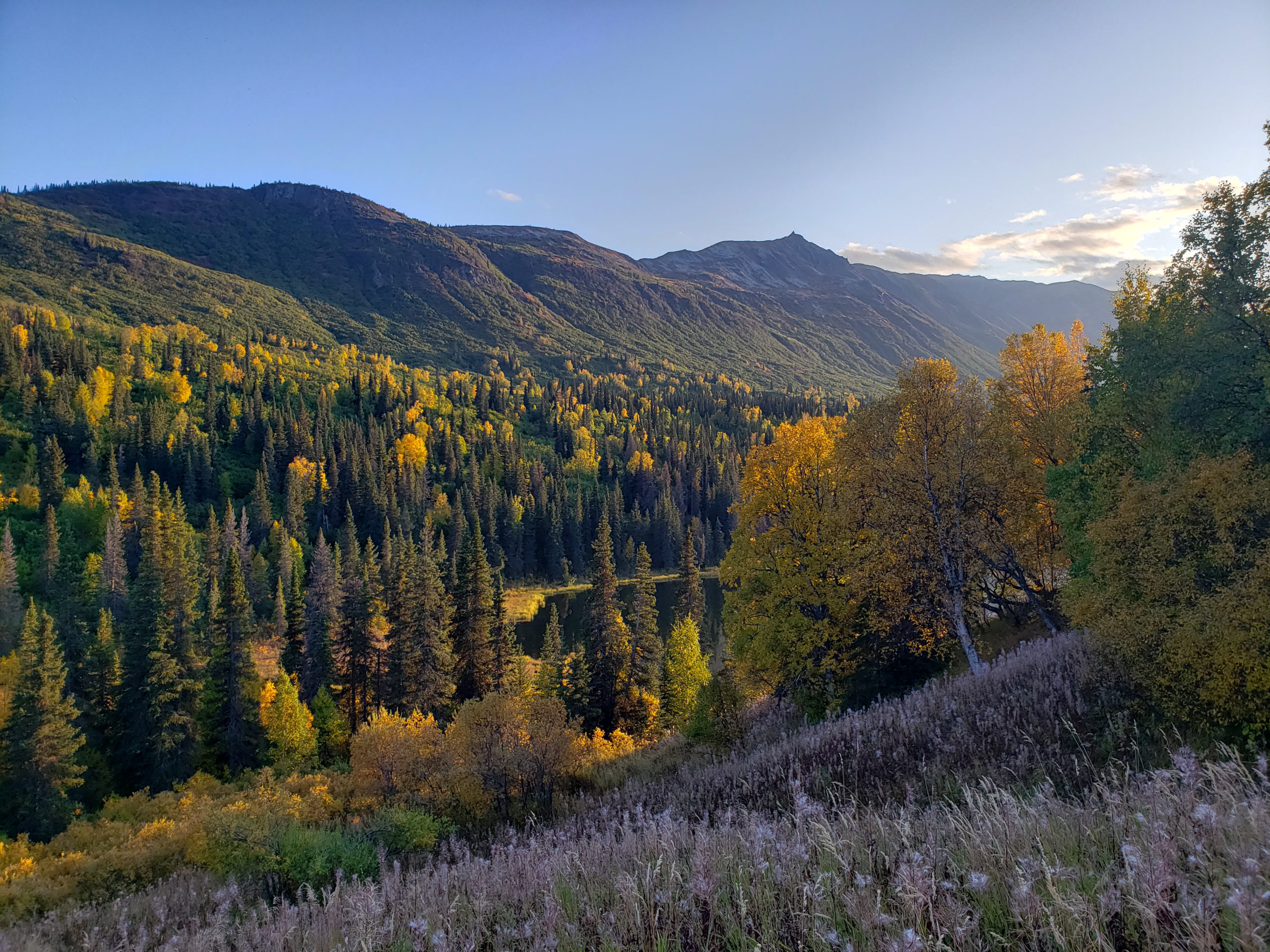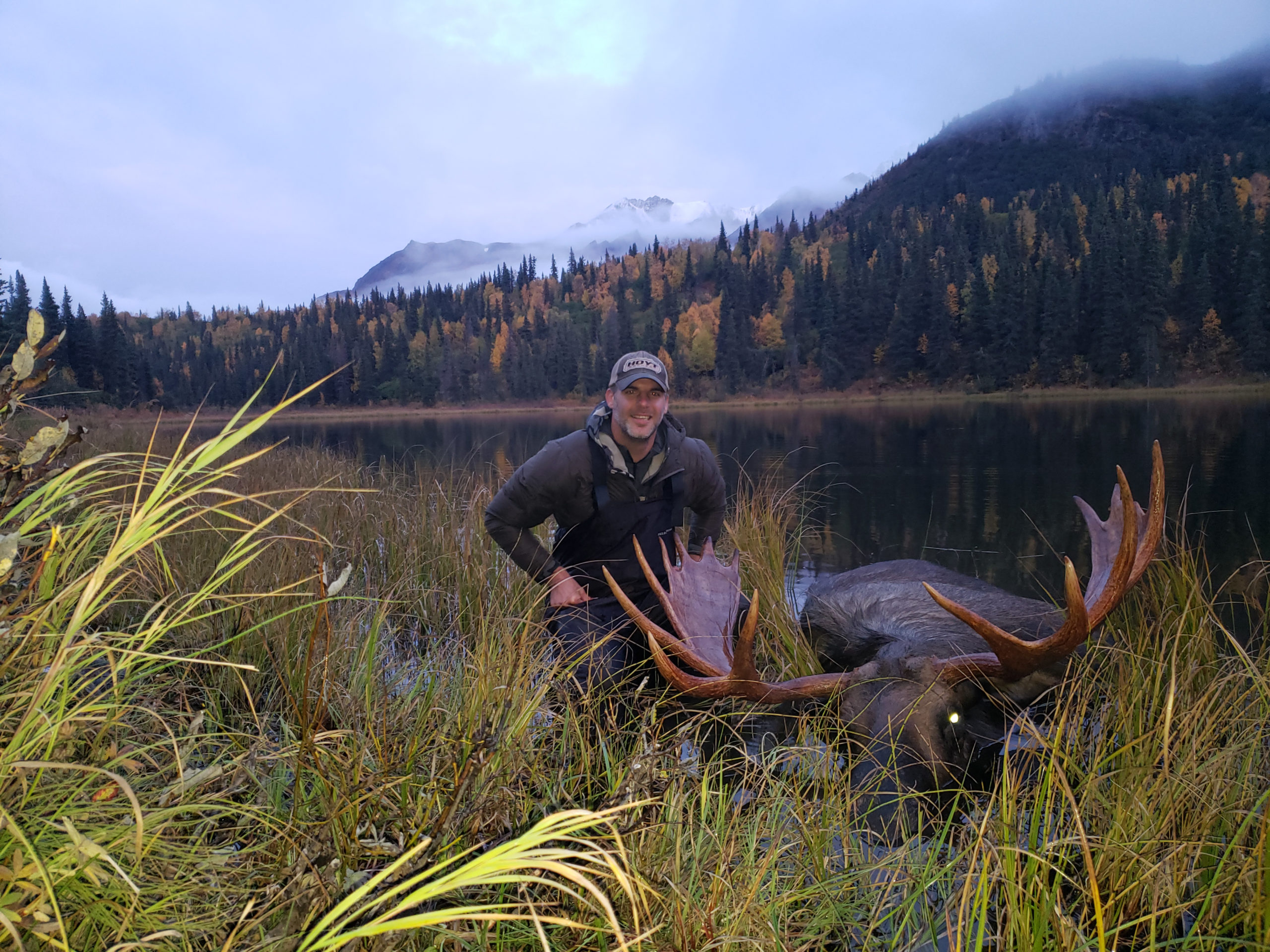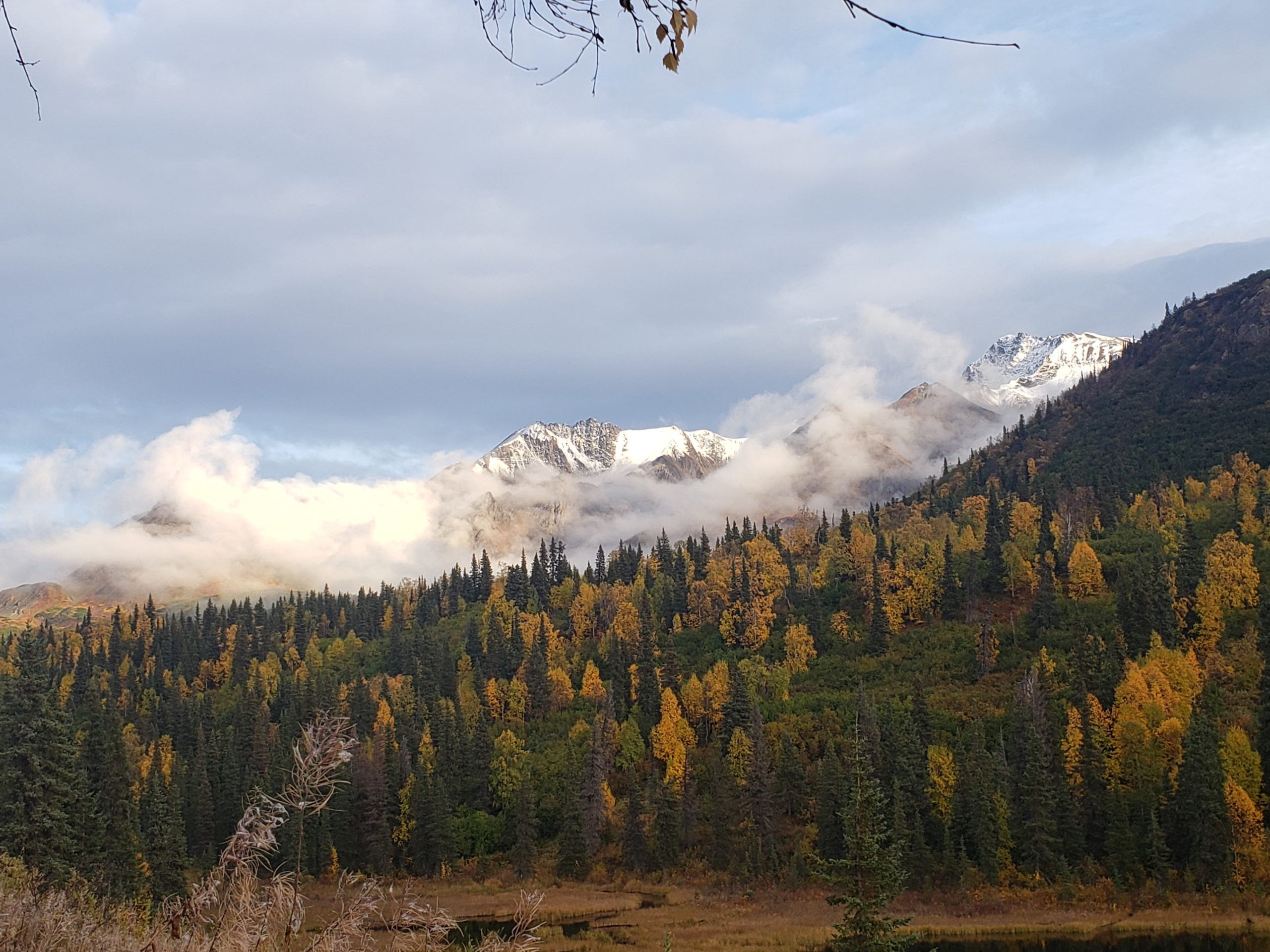A familiar hum filled the air, a comforting reminder that we were only a Super Cub ride away from civilization. But this time was different- the small passenger plane had likely taken off from the small town airport less than 5 miles away from my residence where my family and I were outside enjoying one of the last warm fall days. I centered my daughter’s soccer ball between my feet before bouncing it back across the lawn to her waiting to receive it. It has been three weeks now since I have heard that reassuring sound fill the valley floor surrounding our camp.
Still, immediately I was taken back to the isolated lake in the Last Frontier State where my hunting partner and I had spent ten days in tune with the most exciting time in a ungulates yearly cycle, the rut. For a non-resident, an Alaskan hunt is likely an illusion that only comes into focus after several years of planning. Our experience had been no different, as my hunting partner, Brian Schroyer, and I had invested three years into organizing a moose hunt in September 2019.
Even with all the time invested into this trip, it felt surreal and insurmountable until the floats touched down on the glass-like water of the secluded lake we would hunt. Once my gear was unloaded on the shore, the pilot taxied his Super Cub to the end of the lake and took off just as quickly as he had landed. At that moment, the anxious anticipation I had been feeling was replaced with the reality that the moose tag in my pocket could fill its purpose. I started up the hillside to where Brian had already begun setting up camp. The pilot had shuttled him to the lake and then returned to pick me up, on what turned out to be the perfect day to fly. The beginning of our trip had gone as planned- something we felt fortunate for as the weather in Alaska dictates all transporting abilities. “So far so good,” I said as I lay down the last of my gear next to the tent stakes Brian had been driving into the native soil. The sun was still high in the sky, giving us plenty of time to set up camp and become familiar with our surroundings. Before dark, we let out a few cow calls, signifying what felt like the official start of a hunt three years in the making. Expectations were high as we drew tight the zipper on the tipi shortly after dark.
The next three days were consistent with all the moose hunt articles and books I have read– calling, raking, glassing, and enduring many different flavors of weather. The repetitiveness of our cow moose calls was broken up by encounters with curious bulls. It is incredible how easily you become immersed in the moment on a backpack hunt. The distractions of everyday life are replaced with complete focus on the task at hand. It’s a much more natural feeling like this is what we were designed for, experiencing hunting in its rawest form.
On our fourth day, we woke up to the cool smell of overnight rain. Steam ascended from the lake surface only to meet the fog that blanketed the valley floor. The calmness of this morning gave me an anxious demeanor. A seasoned hunter recognizes dawn like this one—the kind of morning when all your senses are at their peak. Past experiences have ingrained in you the fantastic encounters that take place when everything comes together. Brian let out a cow moan through a fiberglass call that echoed off the willow covered hillside before making its way through the adjacent birch forest. In a moment, we were answered by grunts and splashing from the water’s edge. The bull’s grunts were synchronized with the leisurely swaying of his chocolate-colored antlers as he easily made his way through water that was more than chest deep for either Brian or myself. The bull stopped and focused his curiosity in the direction of the cow calls he had come here to identify.
By his posture, we could tell this bull was an older bull than any we had encountered the past three days, but the fog in between him and us prohibited us from making a confident decision that he was a legal bull. Eventually, he became unsatisfied with our attempt to become a real cow moose and decided he needed a closer look. The bull worked his way around the edge of the lake, and up the hillside where we had been calling. Coming within 20 yards of where we stood, we could easily confirm that he was not a legal bull, but the extraordinary confrontation set the tone for the day. “That was incredible,” I said after the bull had trotted off, and I recovered from the speechless moment. “Even if we don’t see another moose today, I consider it a success,” Brain replied.
An hour before dark, our freeze-dried dinner was interrupted by grunting and raking on the hillside above us. I shut off my Jet Boil stove, and we scrambled to gather our weapons and sneak up the hill to meet the bull at his elevation. The bull saw us before we saw him. He stood at attention 50 yards away while we struggled to get a good look at him through the head-high Fireweed. His weary reaction to our presence showed characteristics of a more mature bull than the others we had called in. The bull was well within range, but no shot presented itself through the thick vegetation. My heart sank as he turned to retreat in the direction he had come.
My mind filled with thoughts of worry that we had just missed our one opportunity. “Let’s sneak down to the lakeshore and continue calling,” Brain whispered. Moments turned into a handful of minutes, which felt like hours. I continuously raked the birch trunk and limbs as I had routinely done the past few days. Soon we heard a familiar splash coming from around a bend in the lake. I could see ripples in the water and knew the bull was using the water’s edge to close the distance to our location. He searched for the lonely cow as he worked towards us, his paddles swaying as the willow trees had in the rainstorm the night before. I shouldered my grandfather’s Weatherby at my kneeling position. The bull was much closer than I ever anticipated when learning the ballistics at the range months prior. “Go ahead when you’re ready,” my hunting partner declared. The potential energy released from the shell casing, and the bullet found its mark shortly after that.
I have read many stories of hunting guides stressing to their clients to wait until the bull moose is out of the lake or river before pulling the trigger, and what happened next taught me exactly why. The lake we had been quietly hunting the past week now had my expired bull 20 feet from the shoreline.
Managing a downed moose is no small task, let alone one that is not on dry land. The cold water flirted with the top of my chest waders as I moved the bull to the rock-laden bank of the lake. Our headlamps illuminated the work area well into the night. Eventually, all the game bags were filled and arranged around a willow tree to cool. Our now dull blades were wiped clean in the knee-deep water we had been working in the last six hours, a relieving feeling after separating quarters and muscle groups piece by piece. Headlamps lit the well-worked path through the Fireweed towards the Seek Outside tipi. The sky was clear, and the air crisp. I took a moment to grasp the idea that we had just accomplished a dream three years in the making.
The next day was spent deboning the moose meat for transport back to town. The flight back to civilization was just as stunning as the trip in — a fitting finale to an unparalleled experience. The hum of the Super Cub engine faded to silence as we idled to the dock. A couple of handshakes before we watched the pilot lift off the lake towards the backcountry, a sound that will always trigger subconscious memories.


